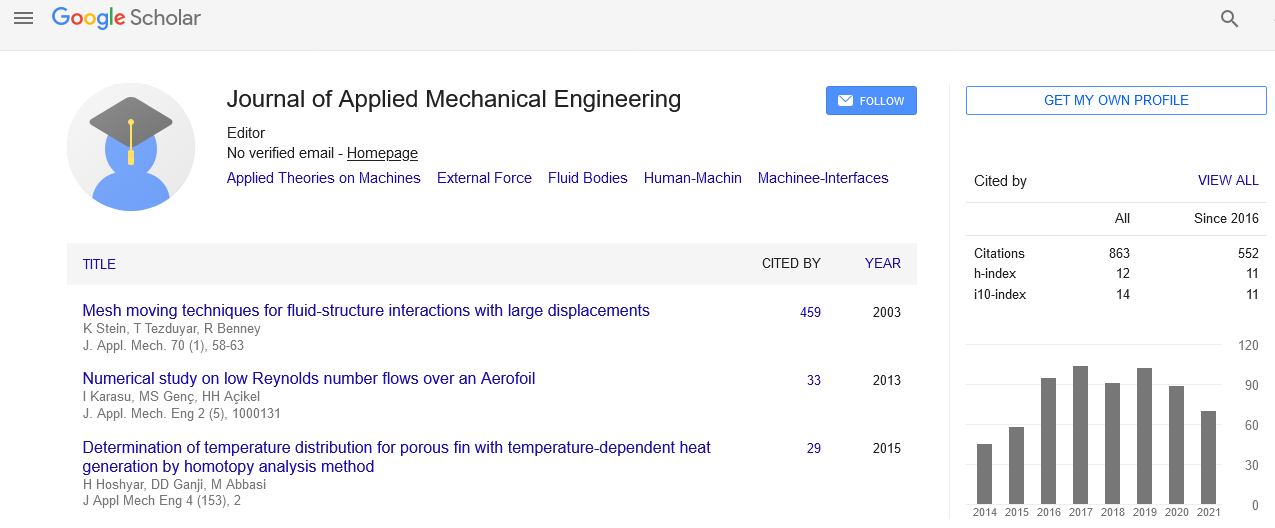Indexed In
- Genamics JournalSeek
- JournalTOCs
- CiteFactor
- RefSeek
- Hamdard University
- EBSCO A-Z
- OCLC- WorldCat
- Publons
- Google Scholar
Useful Links
Share This Page
Journal Flyer

Open Access Journals
- Agri and Aquaculture
- Biochemistry
- Bioinformatics & Systems Biology
- Business & Management
- Chemistry
- Clinical Sciences
- Engineering
- Food & Nutrition
- General Science
- Genetics & Molecular Biology
- Immunology & Microbiology
- Medical Sciences
- Neuroscience & Psychology
- Nursing & Health Care
- Pharmaceutical Sciences
Towards a theory of engineering design
International Conference on Design and Production Engineering
July 25-26, 2016 Berlin,Germany
Jorge Angeles
McGill University, Canada
Scientific Tracks Abstracts: J Appl Mech Eng
Abstract:
The best known design schools (the German School, Axiomatic Design, Robust Engineering and TIPS) are evoked and approached with a critical view in this paper. An eclectic approach leads to a unified framework that can form the foundations of a theory of engineering design, which seems to be lacking, mostly because the various schools appear reluctant to combine among themselves. Using the mathematical theory of communication, along with the information axiom of axiomatic design, the complexity of a design variant at the conceptual phase of the design process is defined. It is shown that, upon resorting to Taguchi's loss function, the type complexity of design components within a specific context, e.g., pin joint vs. sliding joint in machine design, can be exploited to associate a complexity measure to these joints for comparison purposes. Designers are known to prefer the former to the latter, whenever a choice is possible, based on the "sticky-drawer effect" that is found in sliding joints. While this is common knowledge in mechanical design, a formalization of the practice has been elusive. In mechanical design, other related criteria than type complexity are to be brought into play. These are number complexity (the larger the number of function-carriers, the more complex a design variant); manufacturing complexity and assembly complexity, among many others that depend on the context. While the examples used to illustrate the foregoing concepts are limited to mechanical design, they have been also applied to robot design, where other disciplines, like actuator and sensor technology, play a significant role. Moreover, the basic concepts have been extended to the embodiment stage, upon establishing a model-based version of Taguchi's robust engineering.
Biography :
Jorge Angeles is currently working as Professor in McGill University, Montreal, Canada. He completed his PhD in Applied Mechanics from Stanford University in 1973 and MIng in Mechanical Engineering, UNAM in 1970 and Dipl Eng from National Autonomous University of Mexico in Mechanical-Electrical. His research interests reflect in his wide range of publications in various national and international journals.
Email: angeles@cim.mcgill.ca

